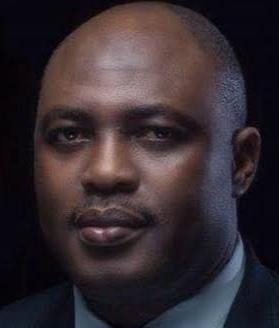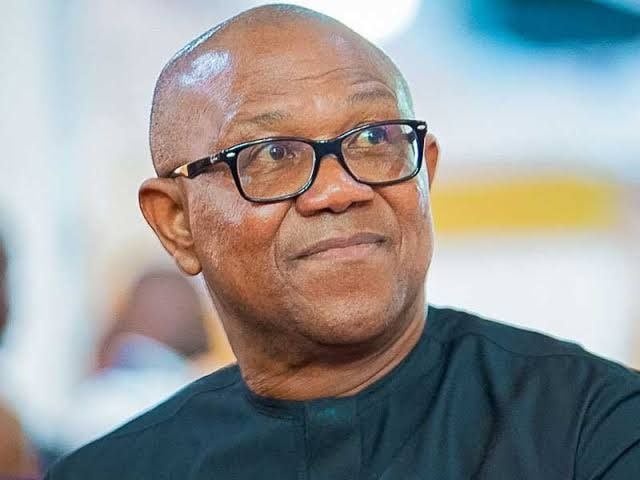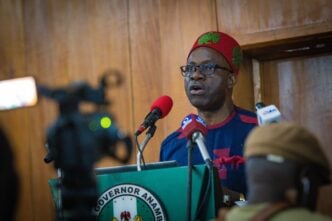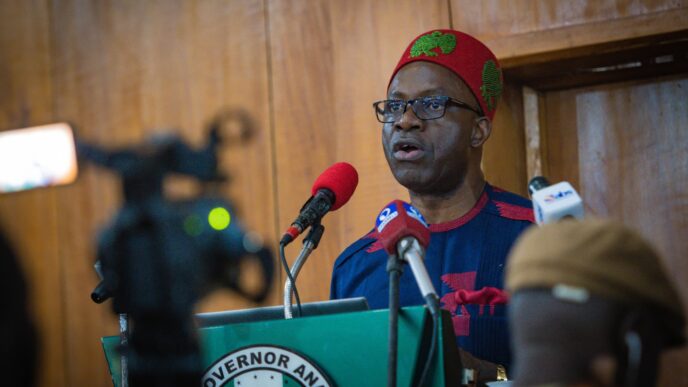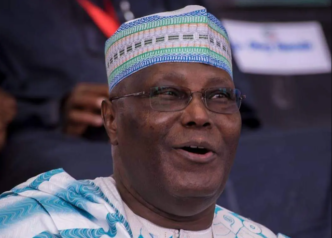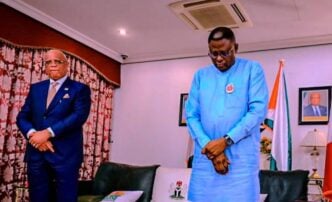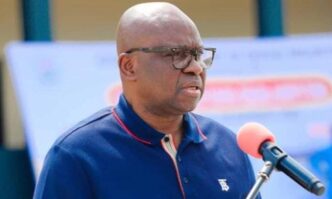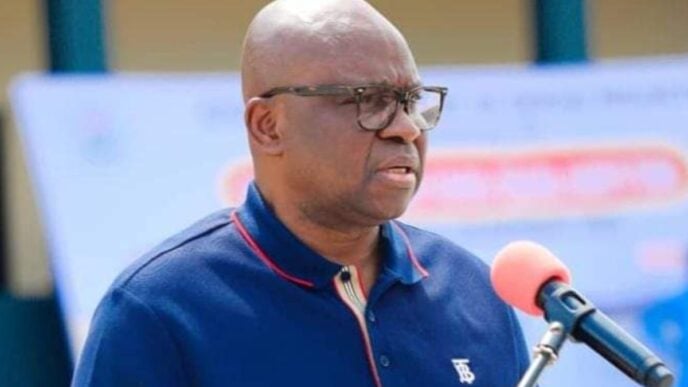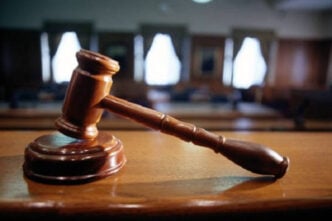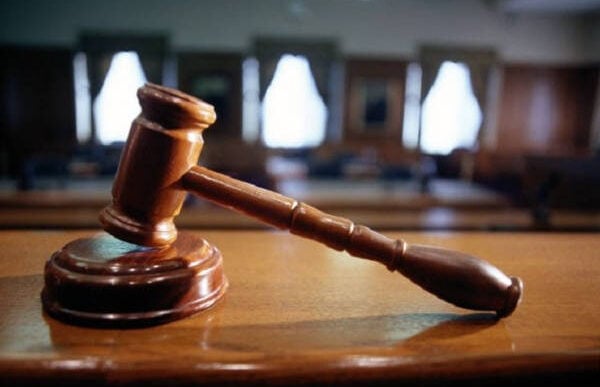Peter Obi
The Obidient Movement (TOM) is more than a political campaign; it is a psychosocial eruption, a cry against perceived national leadership betrayal arising from disillusionment, fierce hope, and righteous indignation. At its heart stands Peter Obi – less a conventional politician, more a symbolic vessel for a nation’s yearning. This is an exploration of the aura he projects, his role as symbolic head, and the crushing weight of messianic expectations placed upon him.
THE ANATOMY OF AN OBIDIENT: HEART, MIND, AND SPIRIT
Emotional Core: A deep-seated grief for a nation unfulfilled, mixed with cathartic hope embodied by Obi. Righteous indignation at perceived injustice (especially before, during and after the 2023 elections) fuels them, while collective euphoria within the movement fosters unprecedented belonging, particularly among the youth – transforming rallies and social media platforms into revivals of national aspiration.
Psychological Landscape: Obi initially offers resonating resolution to Nigeria’s chaos, framing problems (waste, corruption) and solutions (prudence, investment) clearly. Their participation breeds a powerful sense of agency. For many, it breaks through years of perceived powerlessness. However, intense online engagement risks fostering confirmation bias and echo chambers, amplifying supportive narratives while marginalizing or even vilifying dissent. This fuels a tendency towards idealization, placing Obi on a near-messianic pedestal. Such idealization, while emotionally satisfying, risks obscuring the hard work of democratic calibration.
Advertisement
Spiritual Dimension: For many, this transcends politics; it’s a moral crusade against corruption and impunity – a battle for Nigeria’s soul. The 2023 loss imbues them with an aura of sacrifice and martyrdom, strengthening resolve through adversity. At its core lies an unwavering faith in a messianic possibility – the tangible belief that Peter Obi embodies redemption.
THE CONTESTED LEGACY & THE CRITIQUES: BEYOND THE HALO
The Movement’s Rigidity: A Strategic Blind Spot
Criticism of the Obidient movement’s obduracy holds weight. A segment exhibits an “all-or-nothing” absolutism, reflexively condemning any governmental action (e.g., infrastructure projects, social interventions, the reforms) as insufficient or cosmetic. This stems from deep trauma of betrayed expectations – where past “progress” often masked corruption. However, this refusal to acknowledge nuance or incremental gains is perceived by neutrals as irrational dogma, fueling accusations of the movement being an Elitist Grievance Club (EGC) rather than a pragmatic governing alternative. This rigidity alienates potential allies seeking change without the perceived drama of extremism.
Advertisement
Peter Obi: Ex-Governor, Symbol, And The Burden Of The Aura
While Obi’s 2023 loss solidified his aura as the “righteous martyr” for Obidients, his record in public office and persona invite critical scrutiny of his leadership:
Economic Prudence vs. Poverty Realities:
Achievements: Cleared Anambra’s formal debt (₦3.6bn to ₦0), built unprecedented reserves (₦60.4bn), prioritized education reforms, and improved road infrastructure.
Critiques:
• Anambra’s poverty rate surged from 41.4% (2004) to 53.7% (2009) – a 29.7% increase, though this was below Nigeria’s rise (54.4% to 62.8%) during his tenure.
• Verified reserves (₦60.4bn) covered only 57% of ₦106bn contractual obligations he left his successor (projects, unpaid certificates, pensions).
• Structural Gap: Prioritizing liquidity over legacy liabilities forced successor Willie Obiano into project delays and new loans (₦127bn debt by 2022).
Advertisement
Democratic Credentials Under Scrutiny:
Despite his accountability rhetoric, Peter Obi failed to hold Local Government elections for most of his 8-year tenure. Elections were finally conducted on January 11, 2014—just two months before his term ended—across all 21 LGAs in Anambra. His prolonged reliance on handpicked Transition Committee Chairmen, justified by “fiscal constraints” and court battles, centralized power and undermined grassroots democracy—a significant autocratic flaw challenging his unifying aura.
Allegations of Sectarianism & The Faith Card:
Favoritism: Appointments skewed heavily towards Catholics (85%+ of senior roles in a ~60% Catholic state). While supporters cite competence, critics see religious patronage, deepened by projects like school returns favouring Christian missions.
The Dangerous Gambit: The leaked 2023 audio (where Obi allegedly framed the election as a “Christian vs Muslim war”), even if contested, was seismic. His subsequent refusal to issue a categorical, unequivocal disavowal of religious polarization was telling and alarming. In a nation like Nigeria, where religion ignites violence, such rhetoric, or even its perception, is not strategy – it’s reckless endangerment that strained his unifying aura. Neutrals fear this projected Obi as a man who would, conveniently, subjugate overriding national cohesion to his ambition.
Credibility Contradictions: The Abacha Paradox & Shifting Allegiances
The Abacha Contradiction:
Obi’s 2024 denial of ever meeting Sani Abacha (“I never met Abacha” – Channels TV) directly contradicts his 2022 account at an NESG event where he described Abacha appointing him Port Decongestion Committee Chairman. This documented inconsistency fuels claims of expedient revisionism.
Party Defections:
Advertisement
After vowing lifelong loyalty to APGA (“APGA is my religion”), he defected to PDP (2014) and later LP (2022). He is currently romancing with ADC. This pattern of broken political vows reinforces skepticism about his steadfastness, painting him as a tactical opportunist.
The Digital Shadow: Cyberbullying and Democratic Contradictions
Advertisement
The movement’s demand for ethical governance clashes with its digital coercion tactics:
• Systematic Harassment: Journalists questioning Obi’s fiscal claims faced doxxing and threats. Northern academics reported ethnic slurs.
• Leadership’s Strategic Ambiguity:
• Despite Peter Obi’s calls for civility, groups like the Obi Media Army and other pro-Obi online networks failed to curb harassment, leaving toxic ‘attack hubs’ unchecked—a stark contrast to his unifying rhetoric.
• Obi reframed harassment as “passion for change,” deflecting accountability.
• Impact: 68% of journalists avoid policy critiques; #EnemiesOfNigeria memes inflame tensions.
The Path to 2027: Can the Aura Bear the Expectations?
Advertisement
The Obidient movement’s power lies in its uncompromising demand for renewal, a force that shook Nigeria’s political foundations. Yet, this fervor, centered on one symbolic head, is a double-edged sword:
The Burden of the Messiah: Messianic expectations demand perfection. This mindset leads to the dismissal of valid criticism (poverty surge, fiscal opacity, factual misrepresentations), downplays mistakes as inconsequential, and ultimately risks replacing old patronage with a new urban elite moralism.
Advertisement
Obi’s Crucible:
Atonement & Authenticity: Addressing his Abacha contradiction, party defections, and Anambra’s fiscal gaps is critical to preserving his moral aura. Silence breeds perceived hypocrisy.
From Aura to Agenda: His profound agenda of “Consumption to production” must become costed, inclusive blueprints for security, restructuring, and poverty reduction. Messianic faith requires tangible plans not just valiant sound bites.
Movement Maturation: Nigeria needs a resilient movement like the Obidients as society’s moral compass. But to earn that mantle, it must champion truth over personality—acknowledging progress honestly and holding all leaders accountable.
Can devotion evolve into discerning support?
When loyalty eclipses integrity, the nation loses its mirror. Maturity demands more than fervor—it asks for courage, memory, and the will to see clearly.
Conclusion: The Unfinished Longing for a Nation’s Rebirth
The movement’s toughest battle is with itself: Can it champion democracy while deploying authoritarian tactics? Can its leader transform idealism into ethical statecraft? The search for national renewal persists, its moral anchor yet unforged. Nigeria’s soul awaits an answer – one demanding not just passion, but the humility to separate myth from reality.
Opeseitan crafts dignified public narratives with purpose and conviction.
Views expressed by contributors are strictly personal and not of TheCable.
